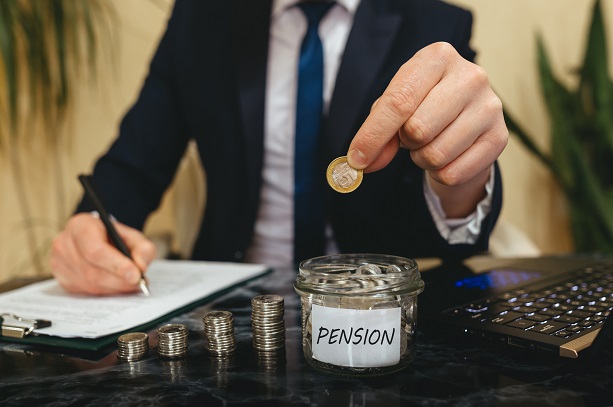I am going to be signing-off for a few weeks now for a much-needed proper break, (excluding Christmas) the first since July last year, so am completing an eshot just before I disappear.
Of course I shall be keeping more than a wary eye on things and especially the markets (the joys of global internet access!) as I prefer to work for some of the time away and never wanting to return to several thousand emails (however many being ‘rubbish’ but there we are), though I have full trust in our team in my absence. I am pleased to report too that on Monday, investing clients are being posted a newsletter regarding the general market conditions. However, in the face of some horrible things presently, let me just be uplifting first, with two significant facts of ‘good news’ which sadly the media doesn’t promote as much as the bad.
You might not have stopped to realise but the first is that even with global warming, the numbers of catastrophic hurricanes (prospectively exacerbated by higher sea water temperatures) and the financial impact, etc has dropped. The ‘worst’, Hurricane Katrina, hit the US in 2005 and cost the insurance industry $90billion. Hurricane Ian cost $53billion in September 2022. The second is that despite the obvious prediction as a result of people living longer and with more health cures, there is evidence the absolute risk of dementia is lower than it was a generation ago.
What is behind the unexpected decline in dementia?
The statistics suggest a 13% decline, implying that 15million fewer people in high-income countries will develop dementia by 2040.
Finally, I wonder if this year there really will be a ‘Santa Rally’ in markets. The scene is certainly set and it could indeed happen in 2023. This phenomenon was first recorded in 1972 by Yale Hirsch in his Stock Trader’s Almanac, looking at historic trends, patterns and cycles. Whilst his timeframe is short, I suspect ‘it’ could be longer and starting earlier if it is going to happen. Of course this is pure superstition but such things are mathematically more likely to happen when things are so cheap as it also works with collective and infectious human behaviours (otherwise called ‘markets’) and especially when value is so extreme, as now. Maybe I should instead predict a second ‘Pandemic Rally’ after the one starting on 30/10/20 when vaccine roll-out was announced, seeing the biggest one-day rises in some stocks I can remember in my professional life. We are overdue such a jump.
Conditions

So we have enjoyed a small bounce from the depths of despair at the end of October. The Nasdaq (US tech index) dropped to its lowest level since May (down 11%), to put some perspective to matters, remembering that the big seven US stocks dominate that as well as global indices. Since that trough on 27 October, there has been a useful, general bounce, so any fixated traders selling the index as a ‘stop loss’ point of 10% was breached would be somewhat irritated to see the bounce (no, we don’t pursue rigid stop losses but reassess value constantly). Investors, not this index in our view but remember, you must be in it before the rebound, not scrabbling around afterwards. However, there was relief that the UK had no economic growth last quarter though a shrinkage had been ‘hoped’, to show that inflation is being beaten… interest rates will stay at these levels for perhaps a little longer than anticipated, as a result.
The World Bank suggesting oil prices could rise to $150 a barrel if the Middle East conflict escalates is not so helpful but promptly afterwards, the recent spike in prices (Brent at $95 in September and $80 at time of writing) shows how important (or not) ‘forecasts by experts’ (but clung-onto by other experts and politicians incessantly) can be. I suggest (again) a fair price is likely to be around $70.
We have avoided ‘recession’ so far but for the EU it is not so good. Whilst to dampen inflation we need a slowdown so prices can fall (if not rise by less), Germany is on course to fall into recession after a shrinkage in its economy in the quarter to 30 September. The IMF predicts that Germany will be the only G7 nation to slip this year. Its inflation in October was only 3%, a figure I’d like to see here but that won’t happen if prices keep rising from cost-push, including wage increases and inert taxes on products and services.
Janus Henderson has completed an interesting analysis too of the UK’s performance from the beginning of 2022 (so just before Russia’s invasion) to 31 October; it shows the effect oil stocks has had on overall performance here. So the UK’s biggest 20 companies would have produced 20.1%, the FTSE Allshare (which includes all those 20 too) is up 0.6% and the FTSE250, probably a better reflection of the ‘UK’ overall when stripping-away the multinationals and oil majors, is down 23%. Did you do better than -23%? Perhaps you should feel grateful. Whilst pure superstition and ignoring tremendous value demonstrated in the FTSE250 now but it is probably time for those figures to change around big time.
Testimonial

What with the incessant regulatory pressures, let alone the negative market backdrop creating such ongoing uncertainty, it is always pleasant to receive a message of gratitude for what we have done for a client. This man was a victim under the Organic scam – we have helped up to 1,600 victims, encouraging them to claim their compensation for the fraud perpetrated against them and inevitably, many of them with their own personal financial issues created as a consequence.
So many of them had pretty small pots and wholly uneconomic for us to assist, to be frank but we have done so to try to be as helpful as we could to these poor individuals. There has been colossal work involved too, the vast majority all at our cost. Well done to all our staff who have done their utmost to be as helpful and compassionate as possible, regardless of the client’s pot size.
This arrived this month:-
‘Thank you for your reply and help, please thank Rachel on my behalf for dealing with this in the first place. Please let me know how much I owe for your service, which has once again been impeccable.
As I have said before, for a company that did not have to deal with sorting out the problem with Organic in the first place, your service has been outstanding and very much appreciated, I should think by many more than just me.
SO thank you very much, and I wholeheartedly hope the company goes from strength to strength.
All the best for the future. M T’
Lifestyle pensions

The FT ran an interesting piece on this widespread pension investing default fund option which many don’t even realise what it is or that they ‘have it’.
Defined Contribution pensions: the lifestyle you ordered is currently out of stock
The article noted performance of a pot since 1/1/20 based on the received wisdom of risk and growth according to age and effectively the time to your retirement (and the goal of stable returns and safety as you don’t want a big hit just before you leave work). Indeed, because of the automatic ‘lifestyle’ remodelling based on age, some companies also sold shares at a very poor time to buy more of the overpriced bonds too.
So the safe option, 60% in those nice secure 10-year UK government bonds and 40% in the World Index, saw you lose 10% of your money, so no income either. The risky 80:20 option (which suffered heavily when Covid hit) bounced back to show a return of roughly 30%. The median plan, half in each, returned around 10%. ‘Mature savers who were shunted into bonds at record prices may now find their lifestyle fund will no longer finance the retirement lifestyles they planned for’ says the article.
We don’t use lifestyle funds and never have; we proffer advice. Oh, yes, there may be a cost involved (often not always!) but how much would that have been worth to the poor savers who found themselves in all those bonds at the wrong time (and probably still there not knowing what to do and if they should cut and run now). We saved our clients’ decades’ worth of fees by not having any at all…
Commercial property investment

There are lots of negatives affecting commercial property investment presently and not all are about economic factors and higher interest rates affecting return expectations. However, the negativity has increased as open-ended property funds have been closing, so that many retail investors lose the chance altogether of having some of this asset class (something we believe should always be accessible to help spread risks in a portfolio).
Added to this are the well-intended ‘rules’ on overall ‘costs’ to investors. If something seems to cost say over 2.5%pa then ‘it can’t be good for investors’. Of course, with assets like property, costs are higher but that does not bar people from owning them, even our own homes versus rentals! However, many funds are simply giving-up the ghost as their directors or managers cannot be bothered to argue with the regulatory bluntness challenging ‘costs’, regardless of the other great qualities such an asset class can bring too. In reality, even costs of companies on the stock market could be included in the costs investors are suffering for comparison purposes – what is the difference with a property company or fund? A share’s results (capital increases and dividends) come after loads of costs have been suffered so why are they excluded?
On 9 November, the AIC’s Research Director Nick Britton published a fascinating article on the commercial property investment sector. https://www.theaic.co.uk/
I should add that we have a prejudiced view presently, as ’value investors’ as we have been nibbling-away at the quoted funds in this sector but probably too soon in many cases. He refers to the colossal discounts on quoted funds presently and the high yields accessible from logistics and property funds. He reminds us too that Bond/Gilt yields are all very well but the income never rises and you receive your £1 back at the end of the term (with an assured capital loss if you paid over par value of course, just like the Bank of England is doing now when it sells some of those acquired during Quantitative Easing).
Buy-now-pay-later
 So the FCA has discovered ‘vulnerable’ people are likelier to use these unregulated facilities. Of course, the definition of ‘vulnerable’ is an ever-moving feast in our lives – some are permanently classified thus and for the rest of us we can become vulnerable or events affecting our lives and circumstances can temporarily make us vulnerable.
So the FCA has discovered ‘vulnerable’ people are likelier to use these unregulated facilities. Of course, the definition of ‘vulnerable’ is an ever-moving feast in our lives – some are permanently classified thus and for the rest of us we can become vulnerable or events affecting our lives and circumstances can temporarily make us vulnerable.
However, with respect, but surely it was and is obvious that this was predictable and thus perhaps the ‘vulnerable’ need better protection to avoid using such facilities? 14million (27% of adults) had used these at least once in the six months to January 2023. Half of these had also used high interest loans or credit card debt. If anything, all this shows an even more acute need for basic financial education starting at schools, to help people better manage their finances and to live within their means – and expectations in life.
My best wishes
Philip J Milton DipFS CFPCM Chartered MCSI FPFS FCIB
Chartered Wealth Manager
Fellow Of The Personal Finance Society, Fellow Of The Chartered Institute Of Bankers
Risk Warning
Stock market investments can offer income through the payment of dividends and interest and good opportunities for capital appreciation over the longer term. By this, generally we mean periods in excess of five years, preferably much longer. However, we can never promise you particular returns, especially in the short-term. At any point in time but especially in the short term, your capital could be worth less than the original amount invested as some of the selected holdings may fall in value, regardless of expectations at the time of acquisition. We may also invest in funds that hold overseas securities. The value of these investments may increase or decrease as a result of changes in currency exchange rates. Returns achieved in the past cannot be relied upon to be repeated.
To remind you, why do I send out occasional emails? Because everyone can save money. We have no connection with any companies mentioned and you have to make your own contacts and satisfy your own enquiries. What is in it for us? If we can prove that we are knowledgeable and that our service and advice have good value, then you might contact us for professional financial planning and investment help. You don’t have to do that though and there’s no charge for emails. If simply they save you money, then accept them with our compliments! However, you’ll know where we are!
If you have any queries of any form or indeed any subjects you think I could include, please contact me. I also refer you to our website www.miltonpj.net. We celebrated our 35th anniversary in 2020 and have been publishing a well-respected independent column in the local Paper for most of that time and free client newsletters as well.
Do not forget however the usual caveats – this is not ‘advice’ and you are encouraged to seek that before embarking upon any financial route involving investments, etc.





